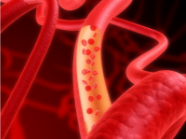- Escambia County Public Schools
- Biology End of Course Review
- SC.912.L.14.36 Cardiovascular System
Science
Page Navigation
- Home
- Elementary Science Curriculum
-
Biology End of Course Review
- Biology EOC Review
- SC.912.N.1.1 Scientific Method
- SC.912.L.18.12 Properties of Water
- SC.912.l.18.9 Photosynthesis and Cellular Respiration
- SC.912.L.18.1 Macromolecules
- SC.912.L.16.17 Mitosis and Meiosis
- SC.912.L.16.3 DNA Replication
- SC.912.L.14.3 Cell Structure
- SC.912.L.14.1 Cell Theory
- SC.912.L.17.20 Human Impact
- SC.912.L.17.9 Food Webs and Energy Transfer
- SC.912.L.17.5 Population Size
- SC.912.L.16.13 Reproductive System
- SC.912.L.16.10 Biotechnology
- SC.912.L.14.52 Immune System
- SC.912.L.14.36 Cardiovascular System
- SC.912.L.14.26 The Brain
- SC.912.L.14.7 Plant Structure
- SC.912.L.16.1 Genetics
- SC.912.L.15.13 Natural Selection
- SC.912.L.15.8 Origin of Life
- SC.912.l.15.6 Classification
- SC.912.L.15.1 Evolution
SC.912.L.14.36 Cardiovascular System
ORGANISMS, POPULATIONS AND ECOSYSTEMS
CLASSIFICATION, HEREDITY AND EVOLUTION
WHAT YOU NEED TO KNOW
-
- You need to know the factors that affect blood flow through the cardiovascular system: blood pressure, blood volume, resistance, disease and exercise.
- You need to know how these factors affect blood flow.
EXAMPLE ONE
-
The rate at which blood flows through the human body changes in response to many factors. Which statement describes one of these factors and its effect on blood flow?
A. A high viscosity of blood causes an increased resistance in the blood vessels and leads to slow blood flow.
B. A low blood pH decreases the rate of diffusion through the blood vessels and leads to slow blood flow.
C. The changing of the shape of red blood cells to a crescent shape decreases resistance and lead to a faster blood flow.
D. The narrowing of blood vessels increases pressure and leads to a faster blood flow.
EXAMPLE TWO
-
Which of the following factors would most directly affect blood flow through the circulatory system?
A. blood pressure
B. blood sugar
C. respiratory rate
D. outside temperature
EXAMPLE THREE
-
What causes blood pressure?
A. cholesterol in the blood
B. stress that exercise puts on heart muscle
C. contraction of the ventricles in the heart
D. removal of oxygen from the blood
EXAMPLE FOUR
-
Which line in the graph above best illustrates an effect of the carbon dioxide level in the blood on breathing rate before, during and after a period of exercise?
A.
B.
C.
D.
EXAMPLE FIVE
-
Which of the following best describes the connection between cardiovascular disease and age?
A. As people age, their blood vessels become more elastic leading to less cardiovascular disease.
B. As people age, the heart becomes more efficient with each pump, increasing cardiac output.
C. As people age, blood pressure decreases leading to more cardiovascular disease.
D. As people age, plaque builds up in the arteries increasing vessel resistance, which leads to disease.
BLOOD PRESSURE, FLOW, & RESISTANCE
IN YOUR BOOK
-
General Biology - Chapter 30, pg. 732
Honors Biology - Chapter 33, pg. 784



